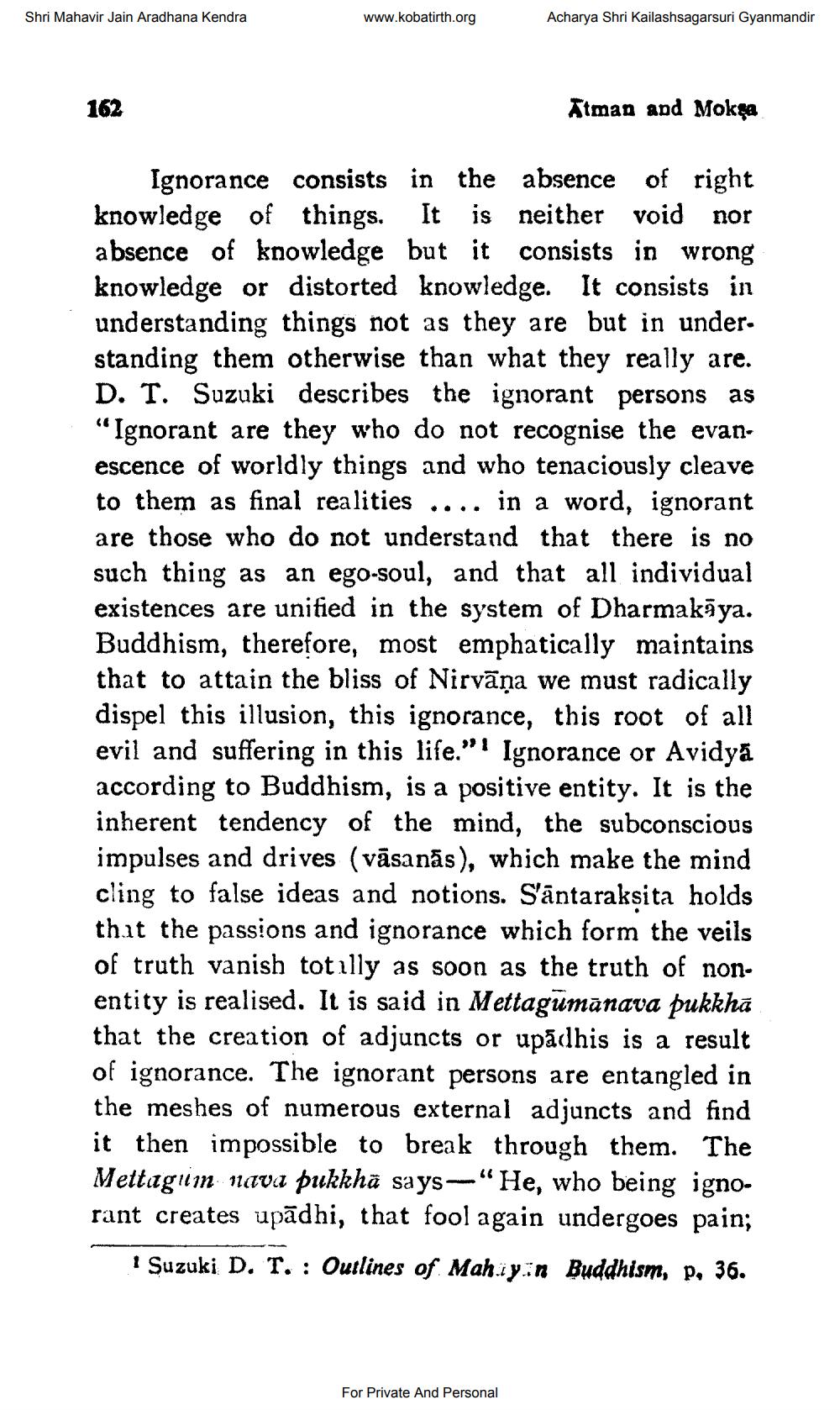________________
Shri Mahavir Jain Aradhana Kendra
www.kobatirth.org
Acharya Shri Kailashsagarsuri Gyanmandir
Atman and Moka
Ignorance consists in the absence of right knowledge of things. It is neither void nor absence of knowledge but it consists in wrong knowledge or distorted knowledge. It consists in understanding things not as they are but in under. standing them otherwise than what they really are. D. T. Suzuki describes the ignorant persons as "Ignorant are they who do not recognise the evanescence of worldly things and who tenaciously cleave to them as final realities .... in a word, ignorant are those who do not understand that there is no such thing as an ego-soul, and that all individual existences are unified in the system of Dharmakāya. Buddhism, therefore, most emphatically maintains that to attain the bliss of Nirvāṇa we must radically dispel this illusion, this ignorance, this root of all evil and suffering in this life."! Ignorance or Avidyā according to Buddhism, is a positive entity. It is the inherent tendency of the mind, the subconscious impulses and drives (vāsanās), which make the mind cling to false ideas and notions. S'āntarakṣita holds that the passions and ignorance which form the veils of truth vanish totilly as soon as the truth of nonentity is realised. It is said in Mettagumānava pukkha that the creation of adjuncts or upādhis is a result of ignorance. The ignorant persons are entangled in the meshes of numerous external adjuncts and find it then impossible to break through them. The Mettagliin nava pukkha says-"He, who being ignorant creates upādhi, that fool again undergoes pain;
Suzuki D. T.: Outlines of Mah.iy.in Buddhism, p. 36.
For Private And Personal




